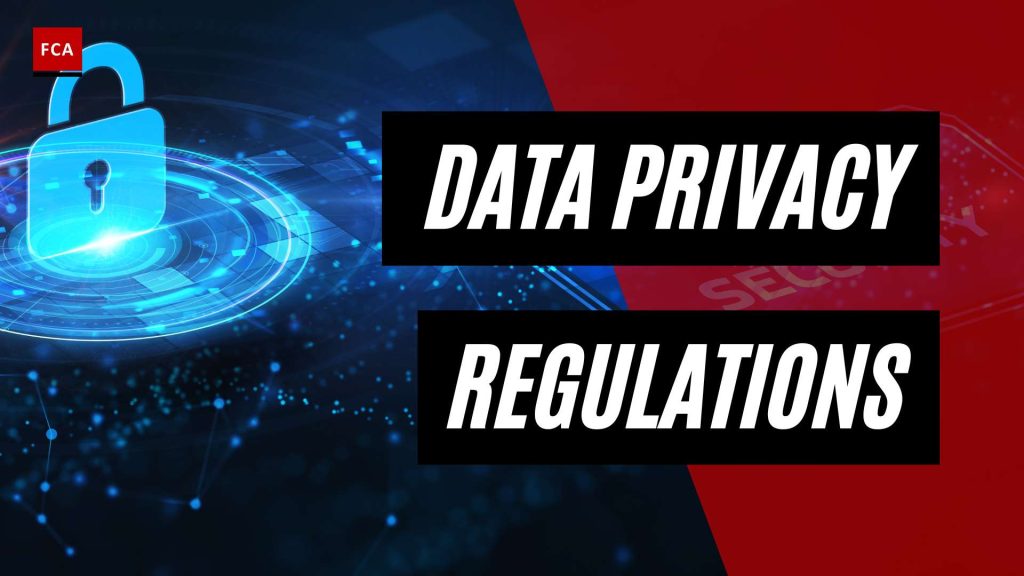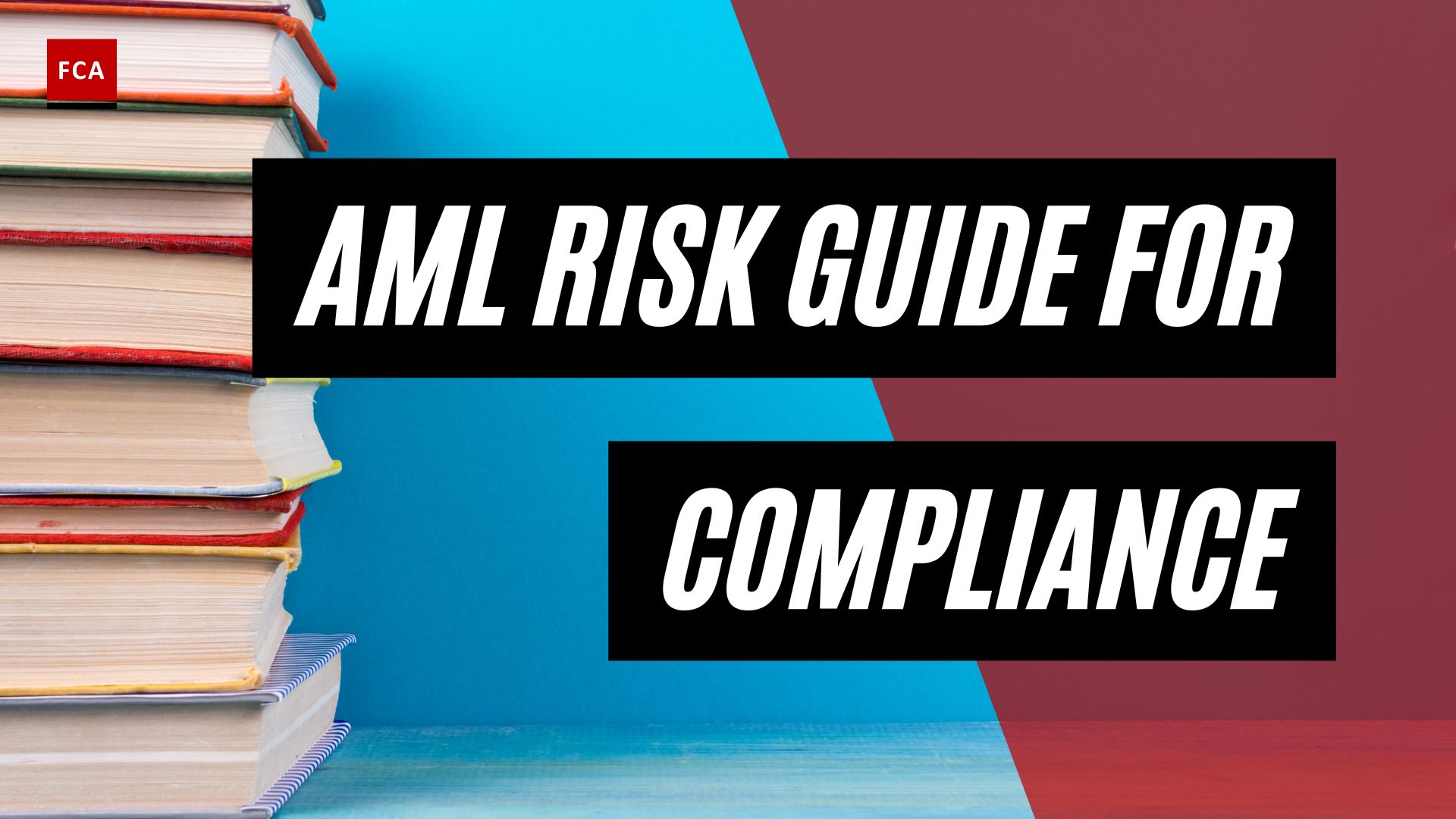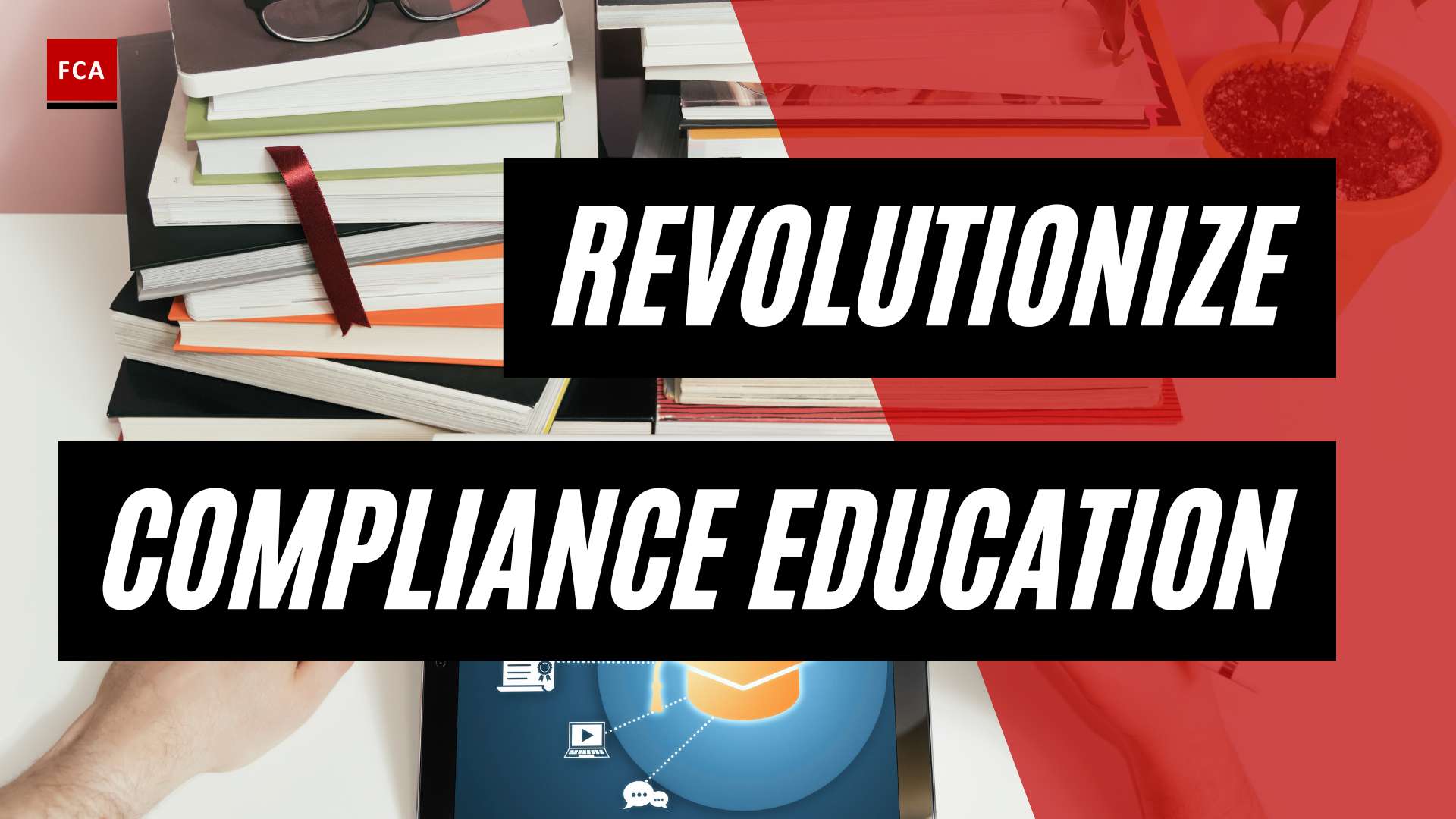Understanding Data Privacy Regulations
To navigate the complex landscape of AML compliance, it is crucial to have a clear understanding of data privacy regulations and their impact. This section provides an overview of data privacy regulations and explores their influence on AML compliance efforts.
Overview of Data Privacy Regulations
Data privacy regulations aim to protect individuals’ personal information by imposing rules and guidelines on organizations that handle and process such data. These regulations often require organizations to obtain explicit consent, implement robust security measures, and provide individuals with certain rights regarding their personal data.
Some prominent data privacy regulations include:
-
General Data Protection Regulation (GDPR): Introduced by the European Union (EU), the GDPR sets comprehensive standards for data protection and privacy. It applies to organizations that process the personal data of individuals residing in the EU. The GDPR imposes severe fines for non-compliance, with fines ranging from 2% to 4% of global annual sales or 10 million to 20 million euros, depending on the severity of the violation (Flagright).
-
California Consumer Privacy Act (CCPA): Applicable to for-profit organizations that conduct transactions with California citizens, the CCPA establishes requirements for businesses that meet specific criteria, such as annual gross sales exceeding a certain threshold or handling the personal information of a significant number of Californians (Flagright).
-
Payment Card Industry Data Security Standard (PCI DSS): While not specific to data privacy, PCI DSS focuses on secure credit card transactions to prevent credit card fraud and data theft. Financial institutions must comply with PCI DSS standards, which include data encryption, firewalls, and anti-virus protection.
-
Systems and Organization Controls 2 (SOC 2): SOC 2 compliance ensures the safety and privacy of customer data by outlining trust service principles such as security, availability, processing integrity, confidentiality, and privacy of customer data (Flagright).
-
Sarbanes-Oxley Act of 2002 (SOX): Though primarily focused on financial reporting transparency and internal control systems, SOX also includes provisions that address data privacy concerns, aiming to prevent fraudulent activities and enhance public trust in corporate practices (Flagright).
Impact of Data Privacy Regulations on AML Compliance
The intersection of AML compliance and data privacy poses unique challenges for organizations. AML regulations often require the collection and processing of personal information, while data privacy regulations mandate the protection of this data and the rights of individuals.
Compliance teams must navigate these regulations carefully to strike a balance between fulfilling AML requirements and respecting data privacy. Failure to do so can result in significant consequences, including fines, reputational damage, and legal repercussions.
To manage this clash effectively, organizations should adopt strategies that prioritize information security, implement robust data protection measures, conduct privacy impact assessments, and ensure compliance with data subject rights and consent management. By doing so, organizations can maintain AML compliance while safeguarding individuals’ privacy.
Understanding the intricacies of data privacy regulations and their impact on AML compliance is essential for compliance professionals, risk managers, and those involved in anti-money laundering and anti-financial crime efforts. By staying informed and implementing best practices, organizations can navigate the complex landscape of AML compliance while upholding the principles of data privacy.
GDPR and Data Privacy in AML
As data privacy regulations continue to evolve, organizations must navigate the intersection between anti-money laundering (AML) compliance and data privacy. The General Data Protection Regulation (GDPR) is a prominent data privacy regulation that has a significant impact on AML.
Key Provisions of GDPR
The GDPR, which applies to organizations processing personal data of individuals within the European Union (EU), sets forth key provisions aimed at protecting individuals’ privacy. Some essential provisions of GDPR include:
-
Lawful Basis for Processing: Organizations must have a lawful basis for processing personal data. This includes obtaining explicit consent from individuals, fulfilling contractual obligations, complying with legal obligations, protecting vital interests, performing tasks in the public interest, or pursuing legitimate interests.
-
Individual Rights: GDPR grants individuals various rights, such as the right to access their personal data, the right to rectify inaccuracies, the right to erasure (also known as the “right to be forgotten”), the right to restrict processing, the right to data portability, and the right to object to processing.
-
Data Protection Officer (DPO): Certain organizations are required to appoint a Data Protection Officer (DPO) responsible for ensuring GDPR compliance, particularly when processing large amounts of sensitive personal data.
-
Data Breach Notification: Organizations must promptly notify the relevant supervisory authority and affected individuals in the event of a personal data breach that poses a risk to individuals’ rights and freedoms.
-
International Data Transfers: GDPR imposes restrictions on the transfer of personal data outside the EU to ensure adequate protection, unless specific safeguards are in place.
To comply with GDPR, organizations must implement appropriate technical and organizational measures to protect personal data from unauthorized access, loss, or disclosure. They must also conduct privacy impact assessments to assess the potential risks and implications of data processing activities.
GDPR Compliance Requirements for AML
When it comes to AML compliance, organizations must navigate the challenges posed by GDPR while fulfilling their AML obligations. A key consideration is achieving a balance between the need to collect and process personal data for AML purposes and respecting individuals’ privacy rights.
To ensure GDPR compliance within an AML framework, organizations should consider the following:
-
Legal Basis for Data Processing: Organizations should identify and document the lawful basis for processing personal data, ensuring it aligns with GDPR requirements. This may include obtaining explicit consent, fulfilling legal obligations, or pursuing legitimate interests.
-
Data Minimization: Organizations should adopt a principle of data minimization, collecting and retaining only the necessary personal data required for AML purposes. Unnecessary data should be securely disposed of to reduce the risk of non-compliance with GDPR.
-
Risk Assessments: Conducting GDPR and AML risk assessments helps identify and mitigate potential risks associated with AML activities while ensuring compliance with GDPR. These assessments should consider the sensitivity of personal data, the purpose of processing, and the impact on individuals’ privacy.
-
Consent Management: Organizations should establish clear processes for obtaining and managing consent from individuals, particularly when processing their personal data for AML purposes. Consent should be freely given, specific, informed, and unambiguous.
-
Data Subject Rights: Organizations must be prepared to respond to individuals’ exercise of their rights under GDPR. This includes providing access to personal data, rectifying inaccuracies, and erasing data when requested, while ensuring that such requests do not impede AML compliance efforts.
It is important for organizations to regularly review and update their AML compliance programs to incorporate GDPR requirements. By ensuring adherence to both AML and data privacy regulations, organizations can effectively combat financial crime while safeguarding individuals’ privacy rights.
Data Privacy Regulations in Emerging Markets
As data privacy regulations continue to evolve, it is essential for organizations to understand and comply with these regulations, especially in the context of anti-money laundering (AML) compliance. In this section, we will explore data privacy regulations in three key regions: Asia, North America, and Europe.
Data Privacy Regulations in Asia
In Asia, several countries have implemented data privacy regulations to protect individuals’ personal information. For example, in India, the Financial Intelligence Unit (FIU) oversees the handling of suspicious financial transactions, aiming to safeguard the financial system from money laundering, terrorist financing, and financial crimes (Flagright).
Another notable example is Hong Kong, where the Hong Kong Monetary Authority (HKMA) plays a significant role in combating money laundering and terrorist financing. The HKMA ensures that financial institutions comply with legislative obligations, including the implementation of efficient AML/CFT (combating the financing of terrorism) programs (Flagright).
Data Privacy Regulations in North America
In North America, data privacy regulations are primarily driven by individual countries and states. For instance, in the United States, the Bank Secrecy Act (BSA) is the primary AML regulation enforced by the Financial Crimes Enforcement Network (FinCEN). Non-compliance with BSA laws can result in criminal prosecution, leading to imprisonment and fines of up to $250,000 (Flagright).
California, a prominent state in the U.S., has implemented the California Consumer Privacy Act (CCPA) to protect the personal information of its residents. The CCPA applies to businesses that handle personal information of a certain scale, such as making more than $25 million in gross sales annually or handling personal information of at least 50,000 individuals. Compliance with the CCPA is crucial for organizations operating in California (Flagright).
Data Privacy Regulations in Europe
In Europe, data privacy regulations are particularly stringent. The General Data Protection Regulation (GDPR) is a comprehensive framework that sets high standards for data protection. It applies to organizations that process personal data of individuals within the European Union (EU) and imposes severe fines for non-compliance. The fines can range from 2% to 4% of global annual sales or 10 million to 20 million euros, depending on the seriousness of the violation.
Additionally, Europe has implemented the Fifth Anti-Money Laundering Directive (5AMLD) and the Sixth Anti-Money Laundering Directive (6AMLD). These directives further strengthen AML regulations and emphasize the importance of data privacy in AML compliance (Flagright).
By being aware of the data privacy regulations in different regions, organizations can ensure compliance with AML requirements while safeguarding individuals’ personal information. It is essential to stay updated on the evolving landscape of data privacy regulations and establish robust data protection measures to meet regulatory obligations and maintain the trust of customers and stakeholders.
Managing the Clash: AML Compliance and Data Privacy
In the realm of AML (Anti-Money Laundering) compliance, the requirement to collect and process personal information often clashes with data privacy regulations. This clash presents a challenging dilemma for compliance teams worldwide, as they strive to navigate the complex landscape of AML regulations while adhering to the principles of data protection. This section explores the challenges in balancing AML compliance and data privacy, as well as strategies for ensuring AML compliance while respecting data privacy.
Challenges in Balancing AML and Data Privacy
The clash between AML compliance and data privacy arises due to the inherent tension between the need for personal information to combat financial crime and the necessity to protect individuals from unauthorized access to their data. Compliance teams face several challenges when attempting to strike a balance between these two sets of regulations:
-
Conflicting regulatory requirements: Compliance teams must navigate a regulatory landscape that varies based on the jurisdictions in which their company operates and the sector to which their services belong. For instance, businesses in the European Union (EU) must comply with evolving AML laws such as the 6th Anti-Money Laundering Directive (6AMLD), which may conflict with data privacy laws like the EU’s General Data Protection Regulation (GDPR) (Sanctions.io).
-
Information sharing and data exchange: To combat financial crime effectively, information sharing between governments, financial institutions, and other organizations is crucial. However, this poses challenges when it comes to data protection. Compliance teams must ensure the secure exchange of sensitive personal data while adhering to data privacy regulations and industry best practices. Initiatives like the US Patriot Act 314(b) information sharing effort have facilitated greater collaboration, but compliance teams need to strike the right balance to protect privacy (Sanctions.io).
-
Risk-based approach: Adopting a risk-based approach is crucial for managing the clash between AML requirements and data privacy regulations. Compliance teams need to allocate resources efficiently by tailoring strategies to specific operational conditions. By identifying and prioritizing high-risk areas, compliance teams can focus on implementing effective measures that mitigate compliance risks while safeguarding data privacy.
Strategies for Ensuring AML Compliance while Respecting Data Privacy
To navigate the challenges of balancing AML compliance and data privacy, compliance teams can employ several strategies to ensure they meet regulatory requirements while respecting individuals’ data privacy rights:
-
Adopt a risk-based approach: Compliance teams should adopt a risk-based approach to prioritize their efforts and allocate resources effectively. By conducting thorough risk assessments, they can identify areas of highest risk and implement appropriate controls and measures to mitigate those risks. This approach allows for a more targeted and efficient allocation of resources in managing AML compliance alongside data privacy regulations (Sanctions.io).
-
Implement robust data protection measures: Compliance teams should implement robust data protection measures to safeguard personal information. This includes implementing secure data storage, access controls, and encryption protocols. By adopting privacy-enhancing technologies and best practices, compliance teams can ensure the confidentiality, integrity, and availability of personal data while adhering to data privacy regulations.
-
Conduct privacy impact assessments: Privacy impact assessments can help compliance teams identify and assess the potential risks and impacts of their AML processes on individual privacy rights. By conducting these assessments, teams can understand the privacy implications of their activities and take necessary steps to minimize privacy risks and ensure compliance with data protection regulations.
-
Ensure data subject rights and consent management: Compliance teams should establish mechanisms to handle data subject rights requests promptly and effectively. This includes providing individuals with the ability to access, update, and rectify their personal data, as well as managing consent preferences. By respecting individuals’ rights and preferences, compliance teams can demonstrate their commitment to data privacy and maintain compliance with relevant regulations.
Balancing AML compliance and data privacy requires a comprehensive understanding of both regulatory frameworks and the ability to implement appropriate measures that address the challenges posed by their inherent conflicts. By adopting a risk-based approach, implementing robust data protection measures, conducting privacy impact assessments, and ensuring data subject rights and consent management, compliance teams can navigate this delicate balance successfully.
Consequences of Non-Compliance with Data Privacy Regulations in AML
Ensuring compliance with data privacy regulations is paramount for financial institutions engaged in Anti-Money Laundering (AML) activities. Failure to comply with these regulations can result in severe consequences, including fines and penalties, as well as reputational damage and legal consequences.
Fines and Penalties
Non-compliance with data privacy regulations, such as the General Data Protection Regulation (GDPR) in the European Union, can lead to significant financial penalties. The GDPR imposes severe fines for non-compliance, with fines ranging from 2% of worldwide annual revenue or 10 million euros for less serious infractions, to 4% of global annual sales or 20 million euros for more serious violations (Flagright). These fines can have a substantial impact on the financial stability of an institution, potentially resulting in significant monetary losses.
Financial institutions must also consider other data privacy regulations, such as the California Consumer Privacy Act (CCPA) and Payment Card Industry Data Security Standard (PCI DSS), which also impose fines and penalties for non-compliance (Flagright). These regulations have specific criteria for applicability, such as the size of the organization or the number of individuals’ data processed, which institutions must carefully assess to determine their compliance obligations.
Reputational Damage and Legal Consequences
Non-compliance with data privacy regulations can have severe reputational consequences for financial institutions. Data breaches or mishandling of personal information can lead to a loss of customer trust and damage the institution’s reputation. The negative publicity surrounding data privacy breaches can result in a loss of business and potential legal actions from affected individuals.
Legal consequences can further compound the impact of non-compliance. Violations of data privacy regulations can lead to investigations by regulatory authorities and potential legal actions. Financial institutions may face civil lawsuits and regulatory enforcement actions, resulting in additional financial costs and potential long-term legal implications.
To mitigate the consequences of non-compliance with data privacy regulations, financial institutions must prioritize compliance efforts. Implementing robust data protection measures, conducting privacy impact assessments, and ensuring compliance with data subject rights and consent management are crucial steps to minimize the risk of non-compliance and its associated consequences.
By proactively addressing data privacy regulations in the context of AML compliance, financial institutions can protect the integrity and security of customer data, maintain regulatory compliance, and safeguard their reputation in an increasingly privacy-focused landscape.
Best Practices for AML Compliance and Data Privacy
To navigate the complex landscape of AML compliance and data privacy regulations, organizations must implement best practices to ensure the protection of sensitive information while meeting regulatory requirements. Here are some key best practices to consider:
Implementing Robust Data Protection Measures
Protecting customer data is of utmost importance in both AML compliance and data privacy. Organizations should implement robust data protection measures to safeguard sensitive information from unauthorized access, breaches, and misuse. This includes:
- Utilizing encryption techniques to secure data both at rest and in transit.
- Implementing access controls and strict authentication protocols to restrict data access to authorized individuals.
- Regularly updating and patching software and systems to address vulnerabilities and minimize the risk of data breaches.
- Conducting regular security audits and penetration testing to identify and rectify potential weaknesses in data protection measures.
- Establishing clear data retention policies and securely disposing of data that is no longer required.
By implementing these measures, organizations can demonstrate their commitment to data privacy and protect against potential data breaches.
Conducting Privacy Impact Assessments
To ensure compliance with data privacy regulations, organizations should conduct privacy impact assessments (PIAs). PIAs are a systematic process that helps identify potential privacy risks and evaluate the impact of data processing activities on individuals’ privacy rights. Key steps in conducting a PIA include:
- Identifying the personal data being processed and the purposes of processing.
- Assessing the necessity and proportionality of data collection and processing activities.
- Evaluating the potential risks and impacts on individuals’ privacy rights.
- Implementing measures to mitigate identified risks and enhance data protection.
- Documenting the PIA process and its outcomes for transparency and accountability.
By conducting PIAs, organizations can proactively identify and address privacy risks, ensuring compliance with data privacy regulations and building trust with customers.
Ensuring Data Subject Rights and Consent Management
Data privacy regulations grant individuals certain rights, such as the right to access, rectify, and erase their personal data. Organizations must establish processes to honor these rights and effectively manage data subject requests. Key considerations include:
- Providing clear and accessible information on how personal data is processed, stored, and shared.
- Establishing procedures to handle data subject requests promptly and efficiently.
- Implementing mechanisms for individuals to easily exercise their data subject rights, such as online portals or dedicated contact points.
- Obtaining valid and explicit consent from individuals for the collection, processing, and sharing of their personal data.
- Regularly reviewing and updating consent management practices to ensure compliance with evolving regulations.
By prioritizing data subject rights and consent management, organizations can foster transparency, build trust with customers, and demonstrate their commitment to data privacy.
It is important for organizations to remain updated on the evolving landscape of AML compliance and data privacy regulations. By staying informed and adopting these best practices, organizations can navigate the complexities of AML compliance and data privacy, mitigate risks, and build a solid foundation for regulatory compliance.
To learn more about specific compliance requirements and best practices, explore our articles on GDPR and AML compliance, GDPR requirements for AML programs, data protection in anti-money laundering, GDPR and AML risk assessments, GDPR compliance for AML software, GDPR and AML transaction monitoring, GDPR and AML customer onboarding, data minimization in AML compliance, and GDPR and AML training requirements.








